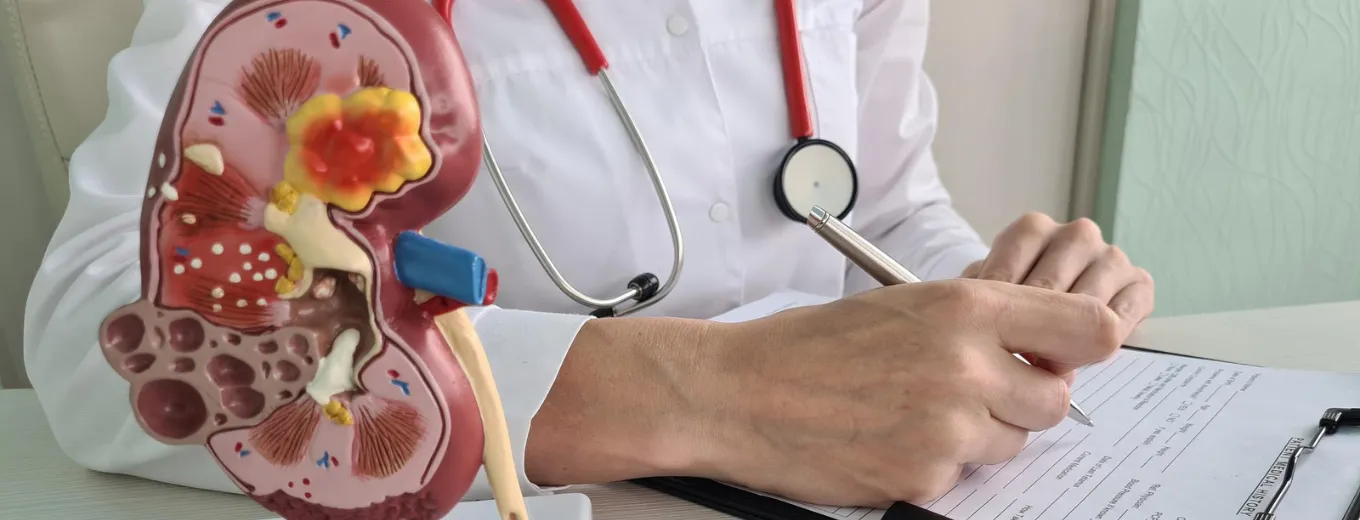Nephrectomy is a surgical procedure that involves the removal of one or both kidneys. It may be performed for various reasons, such as the presence of kidney diseases, tumors, or organ donation. In this article, we will explore the different types of nephrectomy, indications for the procedure, pre-operative check-up requirements, post-operative care, possible complications, the significance of early intervention, and why our urology surgery stands out. Book your appointment with us today to ensure timely and expert care.
Types of Nephrectomy
- Total Nephrectomy: In this procedure, the entire kidney, including the surrounding tissues, is removed.
- Partial Nephrectomy: Also known as kidney-sparing surgery, only the diseased or affected portion of the kidney is removed, leaving the healthy portion intact.
- Open Nephrectomy: This traditional approach involves making a large incision to access the kidney for removal.
- Laparoscopic Nephrectomy: A minimally invasive technique where several small incisions are made, and a laparoscope is used to guide the surgical instruments for kidney removal.
Indications for Nephrectomy
Nephrectomy, a surgical procedure to remove all or part of a kidney, is recommended for various medical conditions. One of the primary indications is kidney cancer, where removal of the affected kidney is crucial to prevent the spread of malignant cells. It is also performed in cases of severe kidney infections, such as pyelonephritis, that do not respond to other treatments. Large or recurrent kidney stones causing extensive damage may necessitate this procedure. Polycystic kidney disease, particularly when it leads to significant pain or dysfunction, is another common indication.
Additionally, nephrectomy is performed for kidney donation in transplantation procedures, offering a life-saving solution to patients with end-stage renal disease. It may also be required for irreparable kidney damage due to trauma or chronic disease.
Pre-Operative Check-up
A comprehensive pre-operative check-up is a crucial step before undergoing a nephrectomy. This process typically begins with a detailed physical examination to assess the patient’s general health and identify any conditions that might influence the surgery. Blood tests are conducted to evaluate kidney function, blood count, and other vital parameters.
Imaging studies, such as CT scans, MRIs, or ultrasounds, are essential to provide detailed visuals of the kidneys and surrounding structures, helping the surgical team plan the procedure. Additionally, a review of the patient’s medical history and current medications is performed to detect any underlying health issues that could pose risks during or after surgery. These evaluations aim to optimize the patient’s condition, address potential complications, and ensure a smooth surgical experience.
Aftercare Following Nephrectomy
Post-operative care after a nephrectomy is critical to ensure a smooth recovery and minimize complications. Patients require close monitoring during the initial recovery period, which involves managing pain effectively through prescribed medications and adhering to proper wound care to prevent infections. Maintaining a balanced and nutritious diet is essential to support healing and overall health, especially for those adjusting to life with a single kidney.
It is vital to follow all specific instructions provided by the healthcare team, including activity restrictions and hydration guidelines. Regular follow-up appointments are a key part of aftercare, enabling the healthcare provider to monitor the surgical site, evaluate kidney function (if applicable), and address any questions or concerns. This comprehensive aftercare approach promotes optimal recovery and long-term well-being.
Cost of Nephrectomy Surgery in Chennai
The cost of nephrectomy surgery in Chennai varies based on several factors, including the type of nephrectomy performed (partial or complete), the hospital’s infrastructure and facilities, the surgeon’s expertise and experience, and the level of post-operative care required. Additional costs may include diagnostic tests, medications, and follow-up consultations, which can influence the overall expenditure.
Hospitals in Chennai offer a range of options to suit different budgets, ensuring access to high-quality medical care. It is essential to discuss your specific medical condition and requirements with our healthcare professionals to receive a personalized cost estimate. They can provide detailed information about the procedure, expected expenses, and any financial assistance options available, ensuring transparency and comprehensive care.
Possible Complications in Nephrectomy
As with any surgical procedure, nephrectomy involves potential risks and complications, though they are generally uncommon. Some possible complications include bleeding, infection, and injury to nearby organs or structures, such as the liver, spleen, pancreas, or intestines. Blood clots, adverse reactions to anesthesia, or the formation of scar tissue can also occur. In rare cases, patients may experience long-term changes in kidney function, especially if the remaining kidney is compromised. Additional risks can include delayed wound healing or, in very rare instances, hernia development at the surgical site. At our facility, we prioritize patient safety by employing advanced surgical techniques, rigorous monitoring, and personalized care plans to minimize these risks and support optimal recovery for every individual.
Importance of Early Intervention
Early intervention in kidney-related conditions is vital for ensuring effective treatment and achieving the best possible outcomes. Identifying and addressing kidney diseases, infections, or tumors at an early stage can significantly help preserve kidney function and prevent the progression to more severe complications. When caught early, conditions such as chronic kidney disease, kidney stones, or tumors can often be managed more effectively, reducing the need for invasive treatments.
Timely diagnosis also plays a critical role in preventing related health issues, such as cardiovascular complications or systemic infections, which can arise from untreated kidney problems. Seeking medical attention at the first signs of kidney-related concerns—such as changes in urination, swelling, or persistent fatigue—can make a meaningful difference in improving a patient’s quality of life and long-term health.
Why We Stand Out in Urology Surgery
We take pride in our urology surgery services, which are characterized by exceptional expertise, cutting-edge technology, and a patient-centric approach. Our dedicated team of urologists and healthcare professionals prioritize personalized care, employing the latest advancements in surgical techniques to provide optimal outcomes. We maintain high standards of safety, efficiency, and patient satisfaction, making us a trusted choice in urological procedures.
Book Your Appointment Today
We invite you to schedule an appointment with our renowned urology surgery team to discuss your specific needs and concerns. Our compassionate professionals are committed to providing the highest level of care, ensuring your well-being throughout your surgical journey. Take the first step towards better kidney health by booking your appointment today.
Nephrectomy is a surgical procedure that involves the removal of one or both kidneys, performed for various reasons such as kidney diseases, tumors, or transplantation. Understanding the types of nephrectomy, indications, pre-operative check-up requirements, aftercare, potential complications, and the importance of early intervention is essential for informed decision-making. Our urology surgery services stand out due to our expertise, technology, and patient-focused approach. Don’t delay your kidney health – book your appointment with us today and receive the expert care you deserve.


